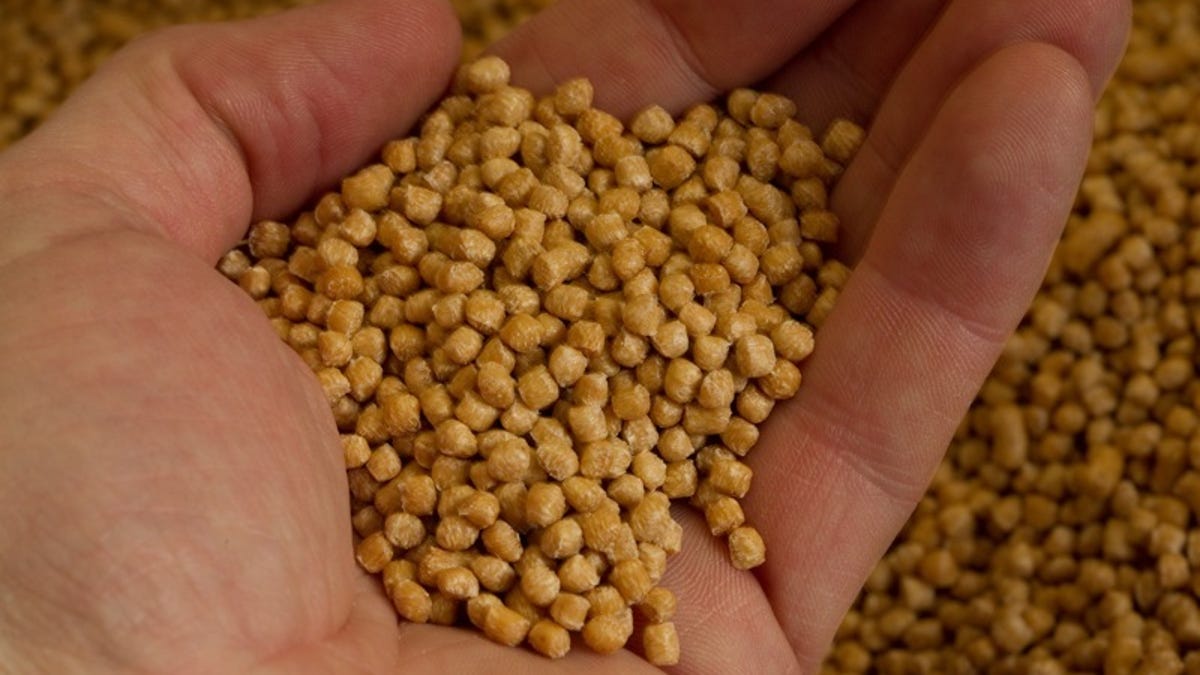Natural bioplastic material could make cars biodegradable
From alternative fuels to soy-foam seats, carmakers are chipping away at the carbon trail their vehicles leave behind. And with Solegear's 100-percent natural polymer, we could start seeing car parts that are completely biodegradable.

From alternative fuels to soy-foam seats, carmakers are chipping away at the carbon trail their vehicles leave behind. To make their cars even more green, soon they could incorporate car parts that are compostable.
Solegear, a Canadian green chemistry start-up, has made the first 100-percent natural bioplastic that is derived from plants. Its completely biodegradable moldable Polysole product can be used to replace the hard plastic parts of a car's interior, such as knobs, steering wheels, and door panels. Until now, the bioplastic industry standard has been able to mix 40- to 60-percent biomaterial with petroleum- based plastic, but Solegear's Polysole could inspire the switch to 100-percent bioplastic in a range of industries, including automotive.
But manufacturers may not ready to make that leap and might prefer to start with Solegear's Traverse--a wood-fiber-filled polymer that can be blended with petroleum-based polymer.
"Traverse is kind of like a hybrid car," said Toby Reid, Solegear's president and chief marketing officer, "because it allows our customers to use less gas. Polysole is like our electric vehicle because it allows our customers to use no gas."
Solegear is speaking with several automotive industry groups, including an undisclosed North American automotive parts supplier and Ford Motor Company, according to Reid. Ford has been a prominent early adopter of green materials in its vehicles, including soy-based foam seats and leather processed without chromium. The company is interested in using Solegear's Traverse product to create partially biodegradable steering wheels.
Skeptical consumers won't have to worry about car parts breaking down in heat or coming apart in their hands--the molecules in Solegear's plastic act the same way as its petroleum-based counterparts in temperature conditions. However, bioplastic will break down under a catalytic process that occurs in commercial compost environments involving the presence of heat, soil, certain microorganisms, and sufficient water operating in unison. Given all of these precise conditions, Polysole can break down completely within 12 months, says Reid.
To educate the public about what car parts are compostable bioplastics, Solegear is working with the recycling industry to introduce the number 8 that could be stamped on parts using its material to let people known that when a bioplastic product can be composted to create soil for gardening or fed into a anaerobic digester to create gas for energy use. Right now 7 is a catch-all category for plastics, and is currently used on bioplastics.
When the public will need to start looking for the telltale stamp of a biodegradable plastic is still up in the air. Although, they have meetings lined up with carmakers, no contracts are in place. But Reid emphasizes that automotive manufacturers have the potential to be leaders in the adoption of green chemistry.
"You don't have to look far to see soy-based polymer being used in seats, and now there are even more durable bioplastics coming into the market, he says. "The automotive industry stands to benefit because we live in a world of finite resources, and switching to renewable resources provides a competitive advantage for generations to come."
But a completely compostable car probably isn't in the cards, says Reid, "there are some aspects of a car's engineering that requires metal."
Source: SAE

